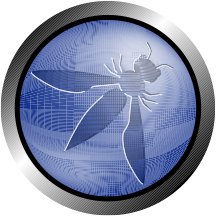This site is the archived OWASP Foundation Wiki and is no longer accepting Account Requests.
To view the new OWASP Foundation website, please visit https://owasp.org
H.....t.....t....p.......p....o....s....t
Registration | Hotel | Walter E. Washington Convention Center
The presentation
Denial-Of-Service is an attempt to make a computer resource unavailable to its intended users and is not new. In recent history such as April 2009, government and financial sites in the U.S. and South Korea were attacked by DDOS and were brought offline for days. This incident followed the and Georgian DDOS attacks in 2008 and Estonian DDOS attacks in 2007. However, the attacks used in these incidents were primarily Layer 4 (TCP) attacks which are already addressed by anti-DDOS solutions.
A NEW and very lethal form of Layer 7 attack technique, which uses slow HTTP POST connections, was discovered by Onn Chee and his team. An attacker will send properly crafted HTTP POST headers, which contains a legitimate "Content-Length" field to inform the web server how much of data to expect. After the HTTP POST headers are fully sent, the HTTP POST message body is sent at slow speeds to prolong the completion of the connection and lock up precious server resources.
They will also demonstrate how an "agentless" DDOS botnet can be created via malicious online games and how a victim website can be brought down in matter of minutes using the HTTP POST DDOS attack.
Onn Chee and Tom Brennan will walk through the details of how this lethal HTTP POST DDOS technique works, other interesting findings in the protocol and the challenges in defending critical infrastructure against targeted attacks.
A Q&A session will be held at the end to BRAIN STORM ideas on how best to defend against this new and lethal DDOS attack technique - including the mobile botnets
Speakers
Tom Brennan is a Managing Partner of Proactive Risk and volunteer to the the OWASP Foundation as Global Board Member and NYC Chapter President.
Onn Chee is currently working as the Chief Technology Officer in Resolvo Systems, a leading information leakage expert in Asia. He has led numerous large-scale projects, primarily in the government and defense sectors. His areas of expertise include information leakage protection, web security and security strategy. Onn Chee is also one of the co-inventors for at least six international PCT patents (http://www.wipo.int).
Onn Chee was a founding member and the first Vice-President of the Information Systems Security Association (ISSA), Singapore Chapter (http://www.issa.org.sg), the largest international, not-for-profit association for security professionals. He contributes regularly to ISSA Journal and has published his works in the area of information leakage protection and application of evidence laws when designing IT systems. He was also a former member of the Center of Internet Security (US) (http://www.cisecurity.org) which provides well-recognized security benchmarks for various systems which are commonly used by US Federal Government and private organizations. Onn Chee is also the current Singapore chapter president of Open Web Application Security Project (OWASP) (http://www.owasp.org/) and the main organizer of the Security Meetup Group in Singapore. Onn Chee is frequently invited to speak in information security conferences here in Singapore.

